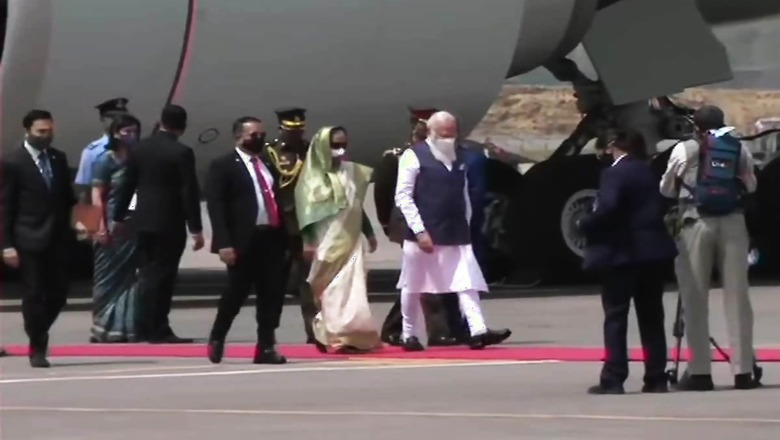
views
At just 18, Hirak Biswas is a dedicated supporter of the Bharatiya Janata Party at Chakdaha in Bengal’s Nadia district. The descendant of a prosperous family from what is now Bangladesh, he has grown up listening to stories of the wealth that his grandparents had to leave behind in erstwhile East Pakistan after Partition. Even as West Bengal goes to polls tomorrow, Prime Minister Narendra Modi will be in Orakandi village in Bangladesh to pay respects to Harichand Thakur, the founder of the Matua sect to which Hirak belongs. Thakur was born in Orakandi in 1812. Matuas are an important Hindu sect spread across West Bengal. For instance, relatives of Hirak’s cousin Sreerupa are settled in Thakurnagar, where the All India Matua Mahasangha is situated, in North 24 Parganas.
Like them, there are many Matuas in Bengal who have similar stories of forgotten prosperity before one of the biggest migrations in human history in 1947. Over the years, due to its numerical strength and voting behaviour, the community has gained political prominence in the state.
Who are the Matuas and what is their significance?
Tracing the sect’s history, one discovers that the community was born out of a reaction against the abject discrimination prevalent in Bengali society at the time.
“In undivided Bengal, the Namasudras, commonly known as ‘Chandalas’, were outside the traditional four-fold Varna system of Hindu society. The Varnashram Dharma or caste system in Bengal was unique. Unlike the rest of India, Hindu society in Bengal was divided as Brahmin and Shudra segments,” said Dr Manosanta Biswas, assistant professor of history at Netaji Subhas Open University, Kolkata.
“They lived mainly in fringe parts of villages called ‘Bile’ (marshy or muddy tracks) of the six districts of the eastern part of undivided Bengal — Jessore, Khulna, Faridpur, Dacca, and Meymensingh,” said Dr Biswas. To make their living, they worked as artisans, boatmen, peasants and agricultural labourers.
According to the 1931 Census, Namasudras comprised 18.94% of the total population of Hindus in the eastern part of Bengal. But despite their numerical strength, they lacked social acceptance in the caste-oriented society of the time. The Namasudras were barred from entering Hindu temples; the Brahmin priests did not preside over their socio-religious functions.
It was under these historical circumstances, informs Dr Biswas, that Harichand Thakur (1812-1878) from a Namasudra family in Faridpur and his son Guruchand Thakur (1847-1937) introduced a new devotion or Bhakti-based religious philosophy called ‘Matua’.
Under the Thakur family’s leadership, the Matua-Namasudras became conscious of their socio-economic positions and they temporarily established the ‘Sri Sri Harichand Mission’ at Orakandi, Faridpur in 1915.
In 1932, the organisation was renamed ‘Matua Mahasangha’ and registered under the presidentship of Pramatha Ranjan Thakur, the grandson of Guruchand Thakur, says Dr Biswas.
“Through its religious code of belief like ‘Haate Kaam Mukhe Naam (doing worldly duties while chanting God’s name), ‘Garhasthya Dharma’ (duties of a household), rejection of caste system and ‘Gurubad’, Matua Mahasangha had played significant role in unifying lower-caste communities in East Bengal, particularly among the Namasudras,” explains Dr Biswas while giving insight into the sect’s philosophy.
In order to attain greater solidarity, ‘Harinam Sankirtan’ and ‘uplifting meetings’ were organised in different villages by the Matuas. These platforms were further used to inculcate self-confidence and self-respect among the community members.
“They were also very supportive to the British colonial government against the high caste, nationalistic Hindu zamindars, and with the active support of the government; they could achieve their political ambition and emerged as a separate political class in 1930,” said Dr Biswas.
Initially, the Matua politics revolved around anti-Congressism, including their opposition to the Swadeshi Movement (1905-1908) — the episodic narrative of the Indian Nationalist Movement. Their argument was that Swadeshi was ‘a slogan of the rich, higher caste, Hindu gentry’ who had always in the past oppressed the Namasudra peasantry.
The split
The Matua movement suffered its first split in 1946. While Pramatha Ranjan Thakur sided with the Congress, another tall Dalit leader of the time, Jogendranath Mandal, supported the Muslim League, calling for unity with Muslims.
During Partition, most of the Namasudra-dominated districts went to East Pakistan, thereby destroying the unity and strength of the Namasudra caste movement. Due to poor economic conditions, most members of the community initially stayed back.
“In 1947, the partition of Bengal completely spoiled the strong caste-based identity movement of Namasudras and as well as Rajbanshis,” Dr Biswas said. Both of them were the two main pillars of the caste movement in pre-Independence Bengal because they faced similar discrimination from the upper castes.
The rise of fundamentalism and rise in communal tension in East Pakistan forced Namasudras including Rajbongnshis and Matuas to migrate to Andaman, Assam, Dandakaranya and even as far as Maharashtra. Later, many of them came back and settled in West Bengal’s districts bordering East Pakistan, now Bangladesh.
Pramatha Ranjan Thakur came to India in 1947, and a year later he along with his wife, Binapani Devi (Boro Maa), founded the Thakurnagar town in North 24 Parganas district, where slowly and steadily thousands of Partition refugees, especially from the Harijan community settled. The otherwise sleepy habitation soon became a seat of reverence and pilgrimage for the Matua community.
Pramatha Ranjan contested the 1951 assembly polls as an independent candidate from the Gaighata constituency and lost to Ziaul Hoque of the Congress. Later, Thakur rejoined the Congress and won the 1957 and 1962 assembly elections from the Haringhata and Hanskhali reserved seats respectively.
In the following years, he briefly became a minister in the BC Roy cabinet in 1962, only to be removed in 1963. Soon he quit the Congress over government’s neglect of the Dalit refugees. In 1967, Pramatha won the Lok Sabha election from Nabadwip constituency as a candidate of the breakaway Bangla Congress. This was the last election he won.
“By this time, the Left parties particularly CPI (M) developed strong influence in the refugee movement and gradually Pramatha Thakur lost his popularity among the Namasudras,” said Dr Biswas. After losing the 1971 and 1977 Lok Sabha elections, Thakur retired from active politics and devoted the rest of his life towards strengthening the Matua Mahasangha. He passed away in 1990.
Left out, Mamata enters
The Left Front government came to power in Bengal in 1977 but despite initially campaigning for the rights and settlement of Dalit refugees, not much was done. Two years later, in January 1979, the Marichjhapi massacre, mostly of Namasudra Dalits, further strained the Left parties’ leftover ties with the community.
Afterwards, sensing a political opportunity, Mamata Banerjee started courting the community aggressively. The carefully crafted outreach worked and the community paid back in kind. After coming to power in 2011, Mamata appointed Manjul Krishna Thakur, ‘Boro Maa’ Binapani Devi’s son, as a minister. But in 2015 he left the Trinamool Congress to join the Bharatiya Janata Party, while accusing the TMC government of not allowing him “to work for the benefit of my Matua community”.
Taking a leaf out of the TMC’s book, the BJP too started making concerted efforts to reach out to the community. In the run-up to the Lok Sabha elections two years ago, Prime Minister Narendra Modi visited Thakurnagar in February 2019 to meet Boro Maa and seek her blessings.
A month later, in March 2019, Binapani Devi passed away at the age of 102. PM Modi had then tweeted a sombre message, calling her “an icon of our times”.
The death of the Matua matriarch, however, divided the family over political affiliations between the TMC and the BJP. Speaking to News18, political expert and litterateur Kapil Thakur had at the time said, “Both the BJP and Trinamool have managed to draw a political line in Boro Maa’s family.”
So how did this community born outside India acquire so much political clout?
“The Matuas represent the oldest organised Dalit religious movement in Bengal that started in the late 19th century in East Bengal,” said Sekhar Bandyopadhyay, emeritus professor of history at the Victoria University of Wellington. Bandyopadhyay, whose literary work on the Matuas is well recognised, further explains that in the 1980s there was a renewed effort to strengthen and widen the community’s organisational structure, hinting at the last days’ work of Pramatha Ranjan Thakur for the community.
“The followers of Matua after Partition migrated to West Bengal and settled in the border districts, where these days they have a unique demographic concentration. This strength of organisation and demographic power give them political leverage,” explains Bandyopadhyay.
Strength in numbers
While there is no official count of the community’s population strength, community leaders put their population at 3 crore, even as a state minister said there are 1.75 crore Namasudra voters, according to a report in The Indian Express.
“The branches of Matua Mahasangha had been established in each district of West Bengal. In 1988, there were 210 branches of the Mahasangha in West Bengal which increased to 2,151 branches across India by 2000,” said Dr Manosanta Biswas.
Sekhar Bandyopadhyay adds: “They proved to be politically very powerful in the parliamentary election of 2009 and assembly election of 2011. It was claimed that they could influence the outcome of nearly 80 constituencies or at least in the 69 reserved SC seats. There can be no doubt that one of the crucial factors behind the political change of 2011 was the Matua support for TMC.”
Explaining the working of the organisation, Dr Biswas further informs that ‘Dalapati’ or the president and secretary play an important role as not only religious mentor but also organiser, and political actor of the localities. District and block level local committees are formally controlled by the central committee of the Matua Mahasangha, he says.
Shedding more light on the Matua voting preference, Dr Sekhar Bandyopadhyay says that in the 1970s and the 1980s, the community mostly comprised Left voters. “But from the 1999 election their preference began to change. In 2009 and 2011 they voted mostly for TMC. In the 2019 parliamentary election they were divided, as there was a division in the Thakur family that traditionally controls the Matua Mahasangha,” he said.
So, what are the prime concerns of the community which guide their political choices?
“The issues of migration, refugee rehabilitation and citizenship lie at the heart of the present politics of the Matuas,” political scientist Praskanva Sinharay writes in the reputed Seminar magazine.
Dr Biswas concurs. “The Matua Mahasangha is the only Dalit religious and social organisation that has been holding meetings and hunger strikes since 2003 on the issue of refugee citizenship,” he said.
“Being refugees, their main concern is about citizenship. They once campaigned to get the CAA 2013 repealed. Now they are concerned about CAA 2019,” adds Dr Bandopadhyay.
Backing the BJP on CAA
A section of Matua voters leaned towards the BJP and it helped the saffron party perform exceptionally in the 2019 Lok Sabha polls. Explaining this shift Dr Biswas said, “Since the Matuas have been persecuted by Muslims from Bangladesh, a section of Namasudras or Matuas have naturally given importance to the issue of Hinduism. Secondly, the BJP has brought the issue of citizenship before them and lifted their infiltrator badge through the 2019 Citizenship Act.”
The Matuas believe that they will be granted citizenship if the BJP comes to power in West Bengal in the 2021 elections; that is why a part of them will support the BJP, Dr Biswas concludes.
Sensing the mood of the Matuas and their voting power, the BJP too has sent the community a very strong feeler through its “Sonar Bangla Sankalpa Patra” or the party manifesto. “We have decided that we will implement the CAA in the first Cabinet meeting itself,” union home minister Amit Shah said last Sunday while unveiling the party’s manifesto in Kolkata.
However, some Matua leaders have expressed resentment against the BJP over delay in the implementation of the CAA.
Secretary of Nikhil Bharat Bangali Udbastu Samanway Samiti (NBBUSS), Sandip Kumar Biswas, said, “They are angry that the central government is yet to announce the CAA implementation date even after two years of the Lok Sabha polls. This time, the Matuas are divided and it will not be an easy task for the BJP to win Matua- dominated seats. This is the reason why Prime Minister Narendra Modi has decided to reach out to the Matua community people in Orakandi Thakurbari in Bangladesh on March 27. He is trying to win the confidence of the Matuas across the world, especially in West Bengal,”
Community members are questioning Shah’s logic of implementing the law after the Covid-19 vaccination process, Biswas says. “If political rallies can happen where thousands of people are gathering every day, why not CAA?” he said.
Sensing an opportunity, West Bengal chief minister Mamata Banerjee has tried to corner the BJP, aggressively campaigning among the Matuas that they have been cheated by the saffron party. She has also alleged that the BJP made a false promise to the Matuas for votes and the Matuas don’t need any Indian citizenship card because they are citizens of India.
Switching sides
The tussle between the TMC and BJP to curry favour with the community is understandable. The Matuas played a key role in ensuring the Left Front remained in power in Bengal for 34 years, till Mamata won in 2011. She knows that any significant division in the Matua vote share, a crucial factor in nearly 80-90 assembly seats out of the 294 in the state, can seriously dent her chances of getting a consecutive third term as chief minister.
In the 2014 Lok Sabha and 2016 assembly elections, largely due to the blessings of the late Binapani Devi Thakur, the TMC ruled the region with the support of the Matuas.
The winds changed in the direction of the BJP in the 2019 parliamentary polls. But since then the TMC has managed to regain some lost ground in Matua-dominated areas.
Shantanu Thakur, the BJP MP from Bengal’s Bongaon, in December last year, urged union home minister Amit Shah through the media to clarify the Centre’s stand over the implementation of CAA in the state.
Thakur, who won the Bongaon seat riding the wave of support for the BJP’s ‘citizenship promise’ to the Matua community, seems to be in a bit of a bind. The joint president of the All India Matua Mahasangha has been missing from the political meetings of the BJP in recent months.
Implications of Modi’s Orakandi visit
However, as per Subrata Thakur, the caretaker of Orakandi Thakurbari in Bangladesh, Shantanu Thakur, his wife Soma and his father Manjul Thakur, will be present with PM Modi in Orakandi on March 27. Thakur also told the media on Friday that the Prime Minister’s Oakandi visit was very significant.
“We are going to have polls tomorrow in West Bengal and we all know Matuas are divided. In such a situation, and if you look at his timing, PM Modi reaching out to Matuas from Bangladesh is very interesting,” political expert Kapil Thakur said.
Speaking to News18.com over the phone from Orakandi, Subrata Thakur said, “We are excited because this is for the first time that the Prime Minister of any country is visiting Orakandi Thakurbari. Tomorrow, he will meet us around 11 am.”
When asked about the significance of the PM’s visit there, he said, “Besides being the Prime Minister of India, he is a religious person also. I think from here he wants to give a message to the Matua community that he cares for them. I think he will manage to win the heart of Matuas in West Bengal through his visit to Orakandi.”
When asked whether his visit will have any impact among the Matua community in the West Bengal Polls, Subrata Thakur said, “Apart from being Prime Minister, he is a senior BJP leader also and I think he will certainly gain Matua support from here. We expect him to provide security to our community people in India and it is only possible through CAA. We are happy that Shantanu Thakur, his wife Soma and his father Manjul Thakur are also coming to Orakandi.”
Utpal Biswas, Saha Sampadak of Sri Hari Darshan, a magazine based on the Matua ideology in Bangladesh, said PM Modi’s visit is a welcome one. “We welcome the prime minister of India and we are honoured that he is visiting Orakandi to meet the Matuas. He may have his political agenda considering the elections in West Bengal but, from our side, we are not bothered and we will welcome him as our guest,” he said.
Read all the Latest News, Breaking News and Coronavirus News here










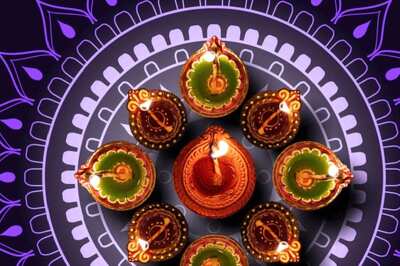
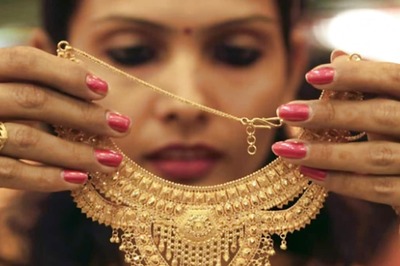

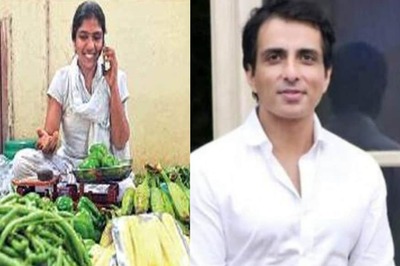
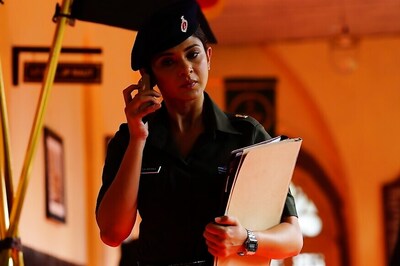
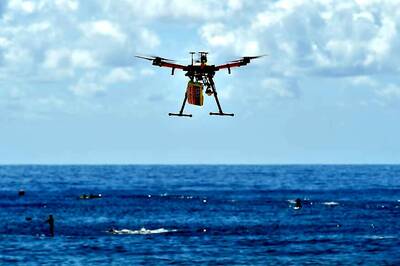
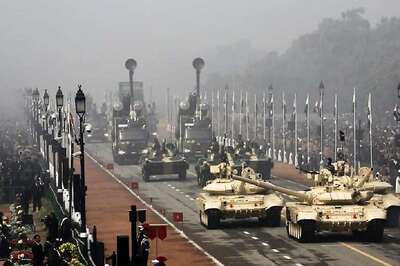
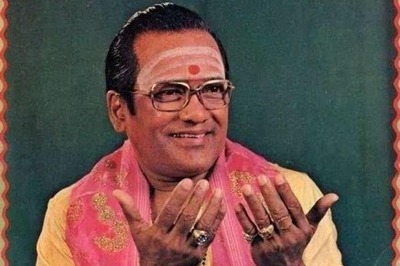
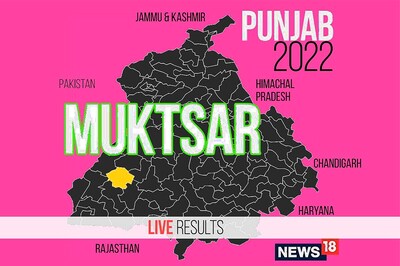
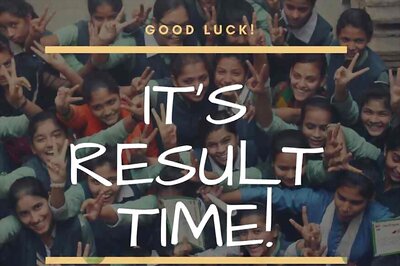
Comments
0 comment